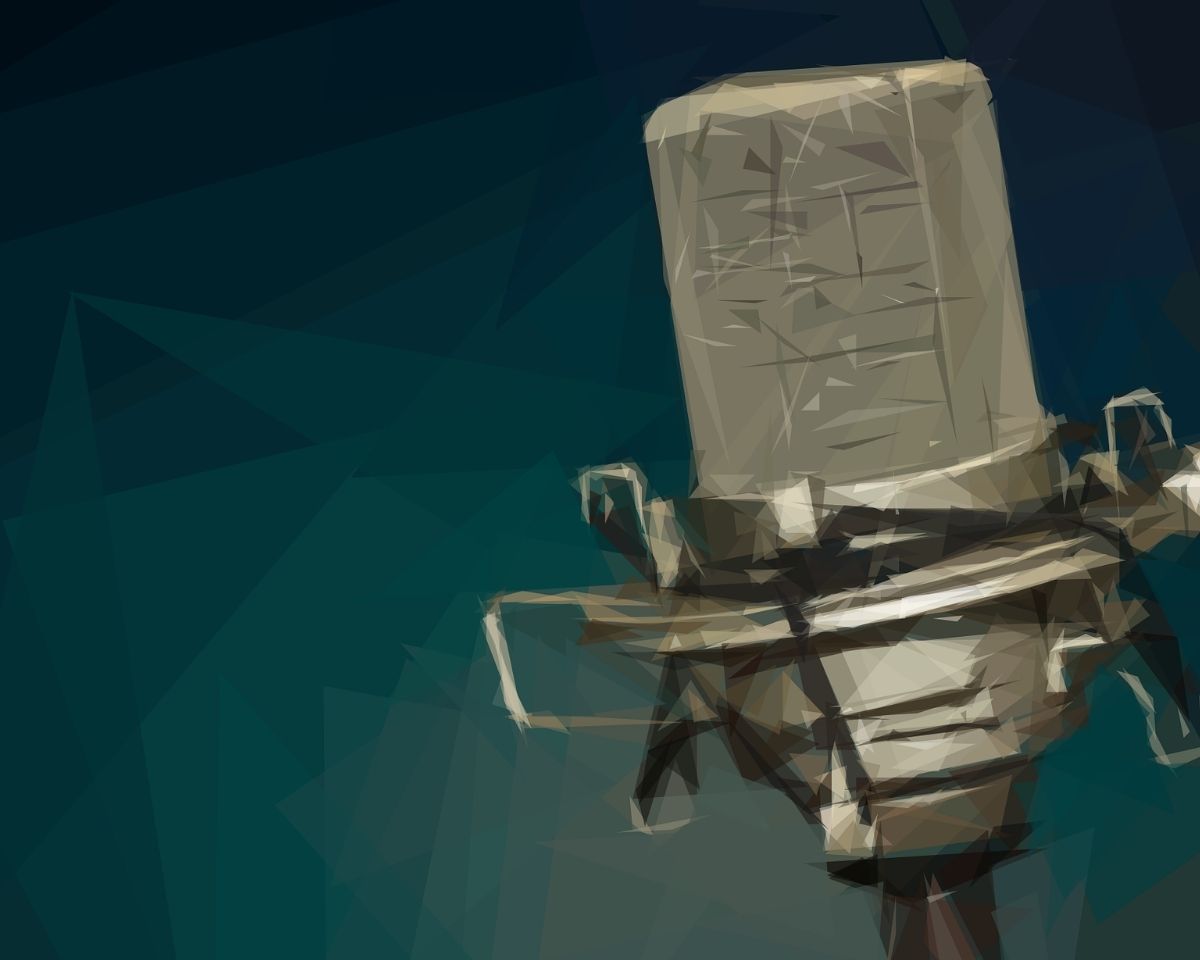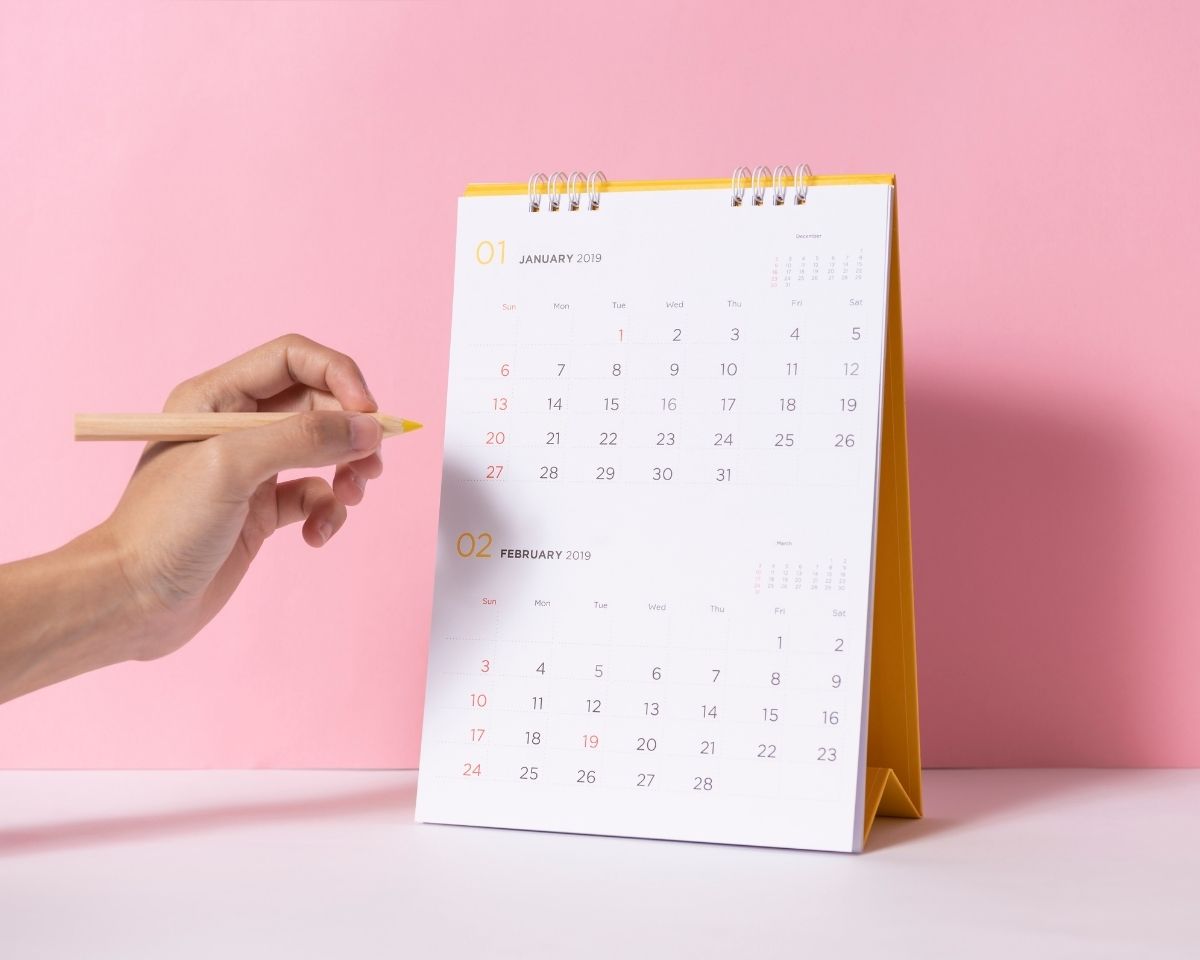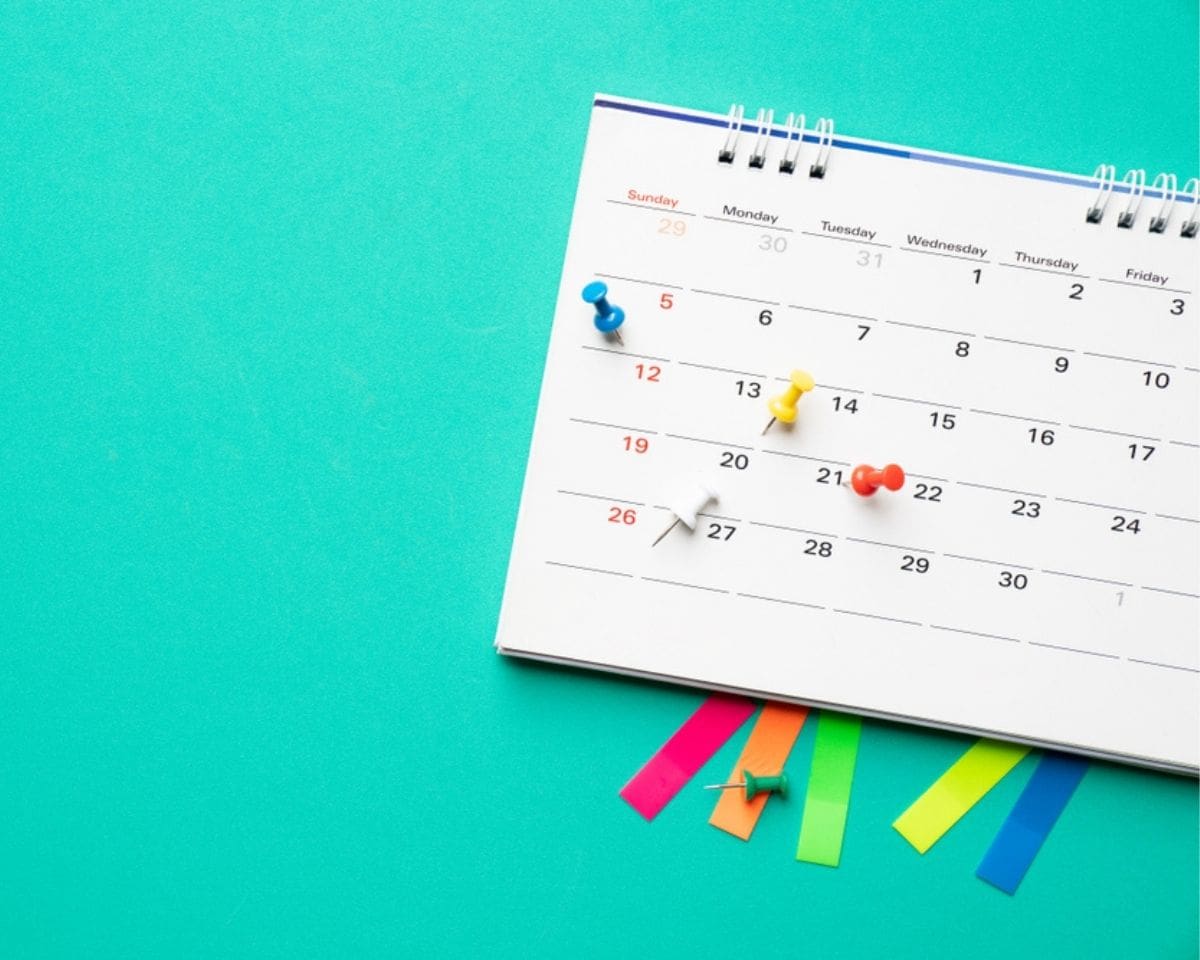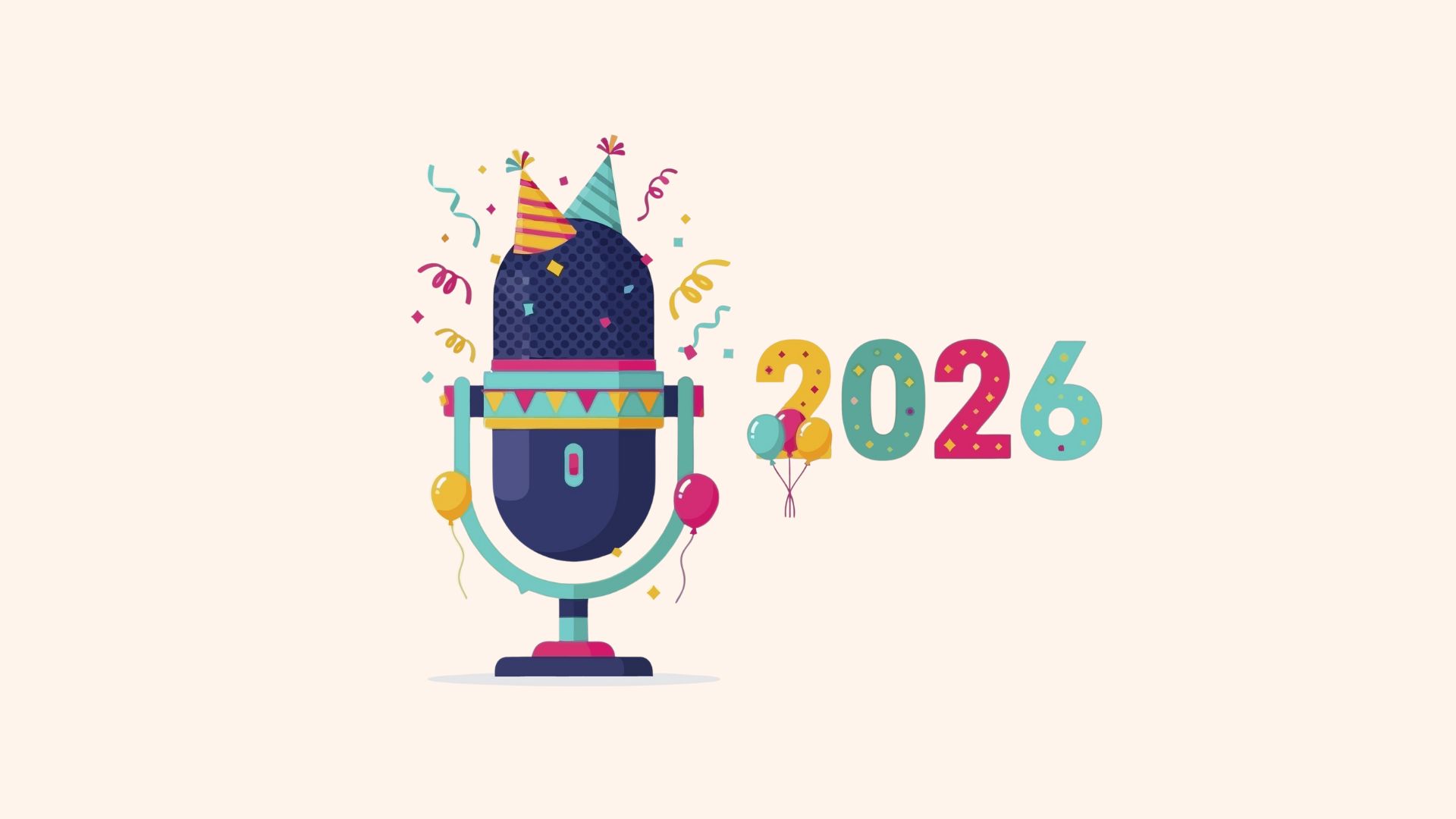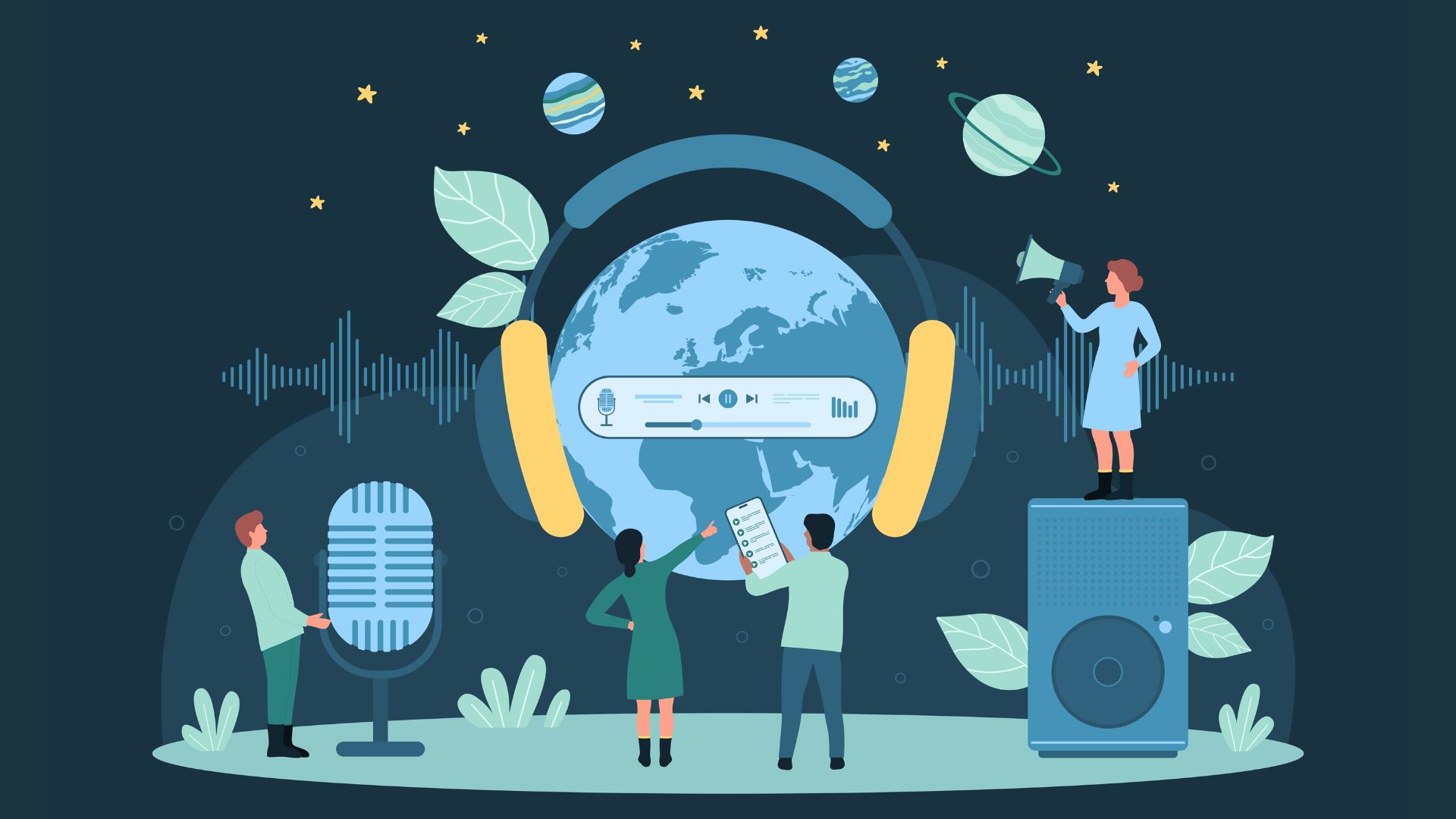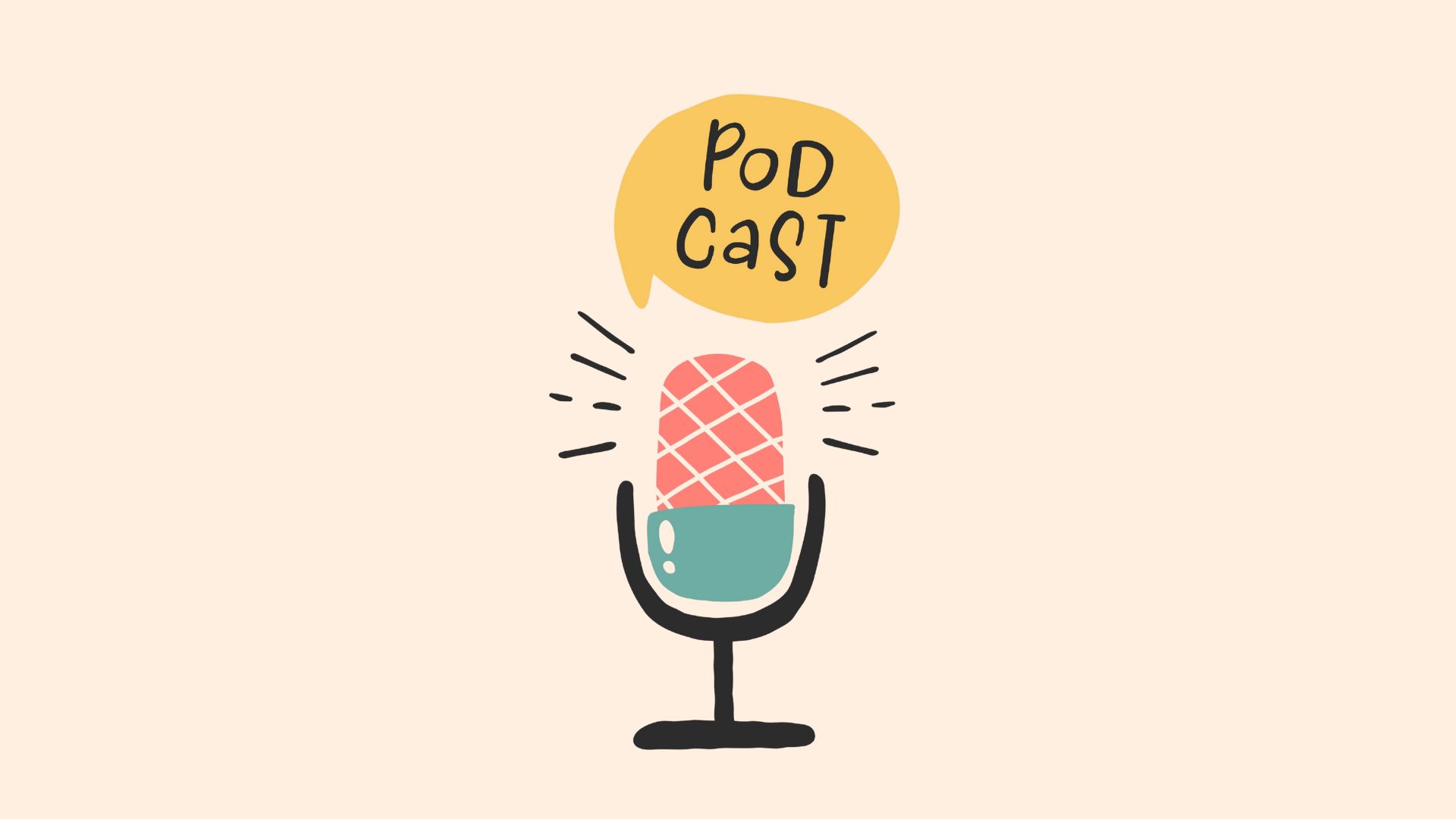What makes a podcast successful?
For the hundreds of thousands of podcasts that fade out after a few episodes, some become such hits it feel like everyone is listening to them.
If you’re looking at your podcast stats thinking “Why isn’t that me?” You’re not alone.
So is there anything you can do to hit those dizzying heights, and if not, how can you give your show the best chance of being a success?
Want help starting your podcast? Download my FREE ‘How To Start A Podcast’ guide.
Overnight success? Not quite.
If a podcast seems to be everywhere and you’ve never heard of it, it’s easy to think it just popped on the scene.
But chances are, if you look into that podcasts back catalogue, it’s probably been releasing episodes consistently for years.
Meteoric rises can happen in podcasting but for most shows, success comes from a long, slow, grind (SORRY!).
What about shows that do blow up quickly?
Some shows can spike in popularity but these are the exception to the rule.
Spikes usually occur due to external events e.g. reality stars doing a podcast while they’re in the middle of a high-profile feud, influencers launching tell-alls, or controversial episodes that tap into the zeitgeist.
Often if these shows have spun up listeners quickly, it’s because the hosts have built up a following on another platform or they’re capitalising on a wave of media attention.
This is something you can’t manufacture and it’s not realistic for most podcasters.
What do successful podcasts have in common?
While there’s no way to guarantee podcast success, (or a quick way to get it) there are some common things all successful podcasts have in common.
1. They start with a clear idea (and their ideal listener)
Too many shows begin with “What do I want to say?” instead of “What does my audience need to hear?”
Successful podcasters get really clear on their ideal listener – who they are, what they care about, and what kind of show fits into their life.
That listener-first thinking guides everything from content and length to tone and publishing frequency.
2. They focus on their audience, not their ego
If you want to grow an audience for your podcast, your content needs to focus on serving them, not you.
If you’re starting a show because your mates say you’re funny at the pub and you think the world should hear that, I have some news for you.
Entertaining your friends over beers every now and then isn’t the same as engaging strangers through headphones, week in week out (and sober).
Successful shows aren’t built on ego.
They’re built on serving an audience who are getting real value from their show.
3. They publish consistently
One of the fastest ways to lose listeners is ghosting them.
Consistency builds trust and it tells your audience, “You can count on me and if you keep showing up, I’ll be here.”
It also helps with audience growth.
When new people check out your show and see regular episodes dropping every week, they’ll look for ways to build your podcast into their lives (and tell others about it).
Inconsistent publishing = inconsistent audience.
4. They prioritise audio quality
If your show sounds bad that’s one of the quickest ways to lose potential listeners.
You don’t need a fancy studio setup to sound great, just the right mic, a good recording space, and some post-production polish.
Successful podcasters respect their listener’s ears and think about how their show sounds before they hit record.
5. They speak to one person
Your audience isn’t consuming your content as part of a crowd, they’re (usually) listening on their own, with headphones in.
That means you need to ditch phrases like “Hey everyone!” or “Hey ladies and gents” for a more intimate, direct tone.
When you speak to one person, you build a stronger connection with all your listeners individually.
And connection builds fans.
6. They define success on their terms
If your measure of success is “Get a million downloads and a Spotify deal,” you’re setting yourself up for disappointment.
Success might mean building an engaged community of 100 listeners.
Or driving leads to your business.
Or getting the right people to hear your message.
Successful podcasters know what they’re aiming for and it’s not always a big download number.
7. They show up for the audience they’ve got
Got 50 listeners? Amazing!
That’s 50 people that are showing up for your content, so show up for them!
Successful shows treat small audiences with the same care as large ones.
Because those people are already saying “yes” to your show, they’ll be the ones most likely to tell others, so nurture that.
8. They have patience
The biggest killer of podcast growth? Impatience.
Podcasting is a long game and if you’re not willing to stick at it for months (or years), it’s unlikely you’ll see traction.
Many successful podcasters have been at it for 5, 7, even 10 years before monetisation or big audiences show up.
Consistency and patience are your best shot at growth.
Focus on what you can control
You might not have a celebrity profile or a marketing budget, but you can:
- Get crystal clear on your idea
- Show up for your audience with great content, every week
- Build an authentic connection with your listeners
- Define your own metrics for success
- Keep going, even when it’s hard
Podcasting success rarely happens overnight but with the right approach, and a whole lot of consistency, it can happen for you.
🎙️ Want to start a podcast but feeling overwhelmed?
Grab my free “How To Start A Podcast” guide or get step-by-step support inside my online course, PodSchool.
Got a question about podcasting? Send it my way so I can answer it on the podcast!
[spp-transcript]



